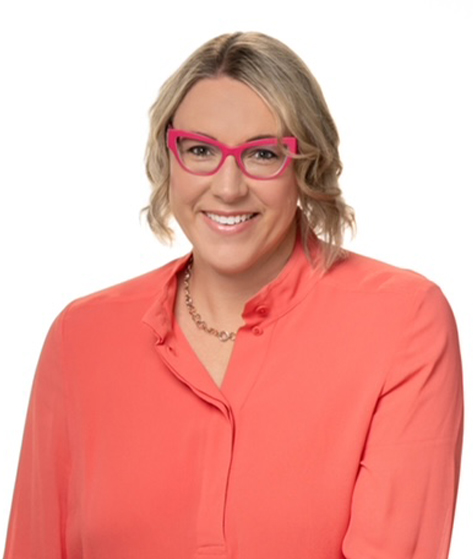At Tucson Breast Health Specialists, we are dedicated to providing comprehensive care for patients diagnosed with breast cancer. Whether you are navigating a recent diagnosis or seeking preventive care, Dr. Ley, a breast surgical oncologist, offers personalized treatment plans to address your unique needs. Our approach includes the latest advancements in breast cancer care, diagnosis, and prevention, ensuring the best possible outcomes for every patient.
What is Breast Cancer?
Breast cancer occurs when abnormal cells in the breast tissue begin to grow uncontrollably. These cancerous cells can form a lump or tumor and, in some cases, may spread to other areas of the body. Breast cancer can develop in both men and women, but it is more common in women. There are different types of breast cancer, including both invasive and non-invasive forms, each requiring specialized care and treatment.
Breast Cancer Diagnosis
A breast cancer diagnosis often begins with imaging tests and biopsies used to detect breast cancer early, especially when breast cancer symptoms like lumps or skin changes appear. Once identified, breast cancer stages help guide treatment options, which may include breast cancer surgery, radiation therapy, hormone therapy, or targeted therapies tailored to specific breast cancer subtypes. In aggressive forms like inflammatory breast cancer or metastatic breast cancer, doctors may combine systemic approaches to treat cancer effectively by targeting the spread and growth of breast cancer cells throughout your body.
Types of Breast Cancer
Breast cancer encompasses a variety of conditions, each with its own unique characteristics and treatment needs. Understanding the different types of breast cancer is essential for determining the appropriate course of treatment or breast surgery, as each form may require a tailored approach to achieve the best outcomes for patients.
Ductal Carcinoma In Situ (DCIS)
DCIS is a non-invasive form of breast cancer that starts in the milk ducts but has not spread beyond the ducts into the surrounding tissue. Although it is not yet invasive, DCIS is considered a precursor to invasive breast cancer and requires treatment to prevent progression.
Lobular Carcinoma In Situ (LCIS)
LCIS is another non-invasive condition where abnormal cells grow in the lobules (milk-producing glands) of the breast. While LCIS is not considered cancer, it increases the risk of developing invasive breast cancer later in life. Patients with LCIS require close monitoring. Some may need surgery to sample the area.
Invasive Ductal Carcinoma (IDC)
IDC is the most common type of breast cancer, accounting for about 80% of all breast cancer cases. IDC begins in the milk ducts and spreads to the surrounding tissue. If not treated, it can metastasize (spread) to other parts of the body.
Invasive Lobular Carcinoma (ILC)
ILC originates in the milk-producing lobules and can spread to surrounding tissue. While ILC is less common than IDC, it is an invasive form of cancer that can also spread (metastasize) in the same way ductal cancer spreads. It differs in that it can be larger than it appears on imaging.
Other Types of Breast Cancer
Other rarer forms of breast cancer include sarcoma (cancer of the connective tissue in the breast) and malignant phyllodes tumors (rare tumors that grow in the connective tissue of the breast). These types of cancer require specialized treatment due to their unique characteristics.
How is Breast Cancer Diagnosed?
Early detection plays a key role in successful breast cancer treatment. Common diagnostic tools include:
- Mammograms: X-ray images of the breast used to detect early signs of cancer.
- Breast Ultrasound: Uses sound waves to create images of the breast tissue, often used to investigate abnormal findings from a mammogram.
- MRI: Magnetic resonance imaging to further evaluate the extent of the cancer.
- Biopsy: A procedure where a sample of tissue is removed and tested for cancer cells. This can help confirm the type of breast cancer.
How is Breast Cancer Treated?
Breast cancer treatment depends on the type, stage, and location of the cancer. Common treatments include:
- Surgical Procedures: Removal of the tumor(partial mastectomy) or whole breast (mastectomy), depending on the cancer’s size and spread. Oncoplastic surgery may follow.
- Radiation Therapy: High-energy rays used to kill cancer cells, usually after surgery.
- Chemotherapy: Drugs used to destroy cancer cells, particularly in more advanced stages of cancer or to shrink tumors before surgery.
- Hormone Therapy: For cancers that are hormone receptor-positive, medications can block or lower estrogen levels to stop cancer growth.
- Targeted Therapy: Uses drugs to target specific cancer cell mechanisms, often with fewer side effects than chemotherapy.
- Immunotherapy: Helps boost the body’s immune system to fight cancer.
Preventing Breast Cancer
While not all cases of breast cancer can be prevented, there are several steps you can take to reduce your risk:
- Regular Screening: While they do not prevent breast cancer, routine mammograms and self-examinations can help catch breast cancer early when it is most treatable.
- Healthy Lifestyle: Maintaining a balanced diet, exercising regularly, and avoiding excessive alcohol and tobacco use can help lower the risk. Following a plant-based diet or Mediterranean diet, consuming less than 4 drinks of alcohol a week, and exercising more than 4 hours a week can all help reduce risk.
- Genetic Testing: For individuals with a family history of breast cancer, genetic counseling and testing may be recommended to assess inherited risk.
- Medications: For high-risk individuals, medications like tamoxifen or raloxifene may help prevent the development of breast cancer.
Risk Factors for Breast Cancer
Several factors can increase the likelihood of developing breast cancer, including:
- Age: The risk increases with age, especially after 50.
- Family History: A family history of breast cancer, especially in first-degree relatives, increases the risk.
- Genetic Mutations: Inherited mutations, such as those in the BRCA1 and BRCA2 genes, increase the risk of developing breast cancer.
- Hormonal Factors: Early menstruation, late menopause, and hormone replacement therapy can increase the risk.
Learn More
At Tucson Breast Health Specialists, we provide compassionate care and expert treatment for all types of breast cancer, from early-stage to advanced cases. We work closely with each patient to develop a personalized treatment plan that addresses their unique needs and circumstances, and are always staying up to date regarding new therapies. Early detection, timely treatment, and preventive care are essential in managing breast cancer effectively and ensuring your well-being. If you or a loved one has been diagnosed with breast cancer, don’t hesitate to contact us to schedule an appointment and discuss your treatment options.
For expert breast cancer treatment in Tucson, AZ, trust the team at Tucson Breast Health Specialists to support you every step of the way.
Breast Cancer Frequently Asked Questions
What are the main treatment options for breast cancer?
What types of surgery are used for breast cancer?
How do I choose between lumpectomy and mastectomy?
What is breast-conserving surgery?
Why would lymph nodes be removed during surgery?
Will I need radiation after surgery?
How soon after my breast cancer diagnosis do I need to have surgery?
What should I ask my surgeon before breast cancer surgery?
When is breast reconstruction done?
What are the risks of breast cancer surgery?
What kind of surgeons perform breast cancer surgery?
What is a Tumor Board?

Board-Certified Surgeon
MICHELE LEY, MD, FACS
Dr. Ley, a breast surgical oncologist in Tucson since 2006, delivers compassionate and personalized care to create tailored treatment plans based on the latest research. Specializing in surgical care for breast cancer and high-risk patients, she employs minimally invasive techniques and practices oncoplastic surgery to optimize outcomes.
More About Dr. Ley“The level of care is excellent.”

ABOUT US
More About Us
OUR BLOG
Read Our BlogCONTACT US
We are dedicated to providing the support you need. Contact us today to learn more about how we can help on your breast health journey.
We are only accepting patients with surgical breast diseases. We do not see patients for breast pain or without imaging in the last three months. If you have been diagnosed with one of the following, please submit the contact form or call our office at (520) 605-2778 to schedule your appointment.
- Breast cancer, DCIS (ductal carcinoma in situ), LCIS (lobular carcinoma in situ), invasive ductal carcinoma, invasive lobular carcinoma, and any other breast malignancies such as sarcoma, and malignant phyllodes
- Patients with known genetic mutations such as BRCA 1, 2, and others
- Fibroadenoma, phyllodes tumor, radial scar, complex sclerosing lesion, papilloma >8mm, atypical papilloma, nipple mass or ulceration,
- Granulomatous mastitis
- Atypical ductal or lobular hyperplasia ( ALH, ADH), and any benign lesion with atypia










